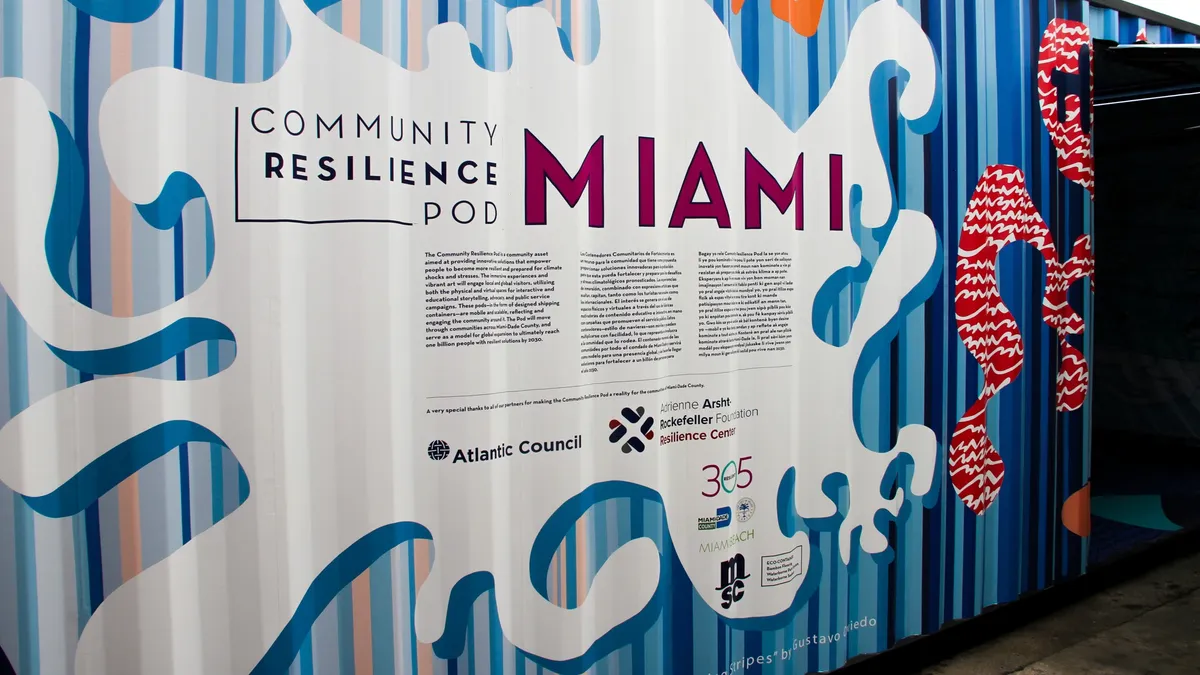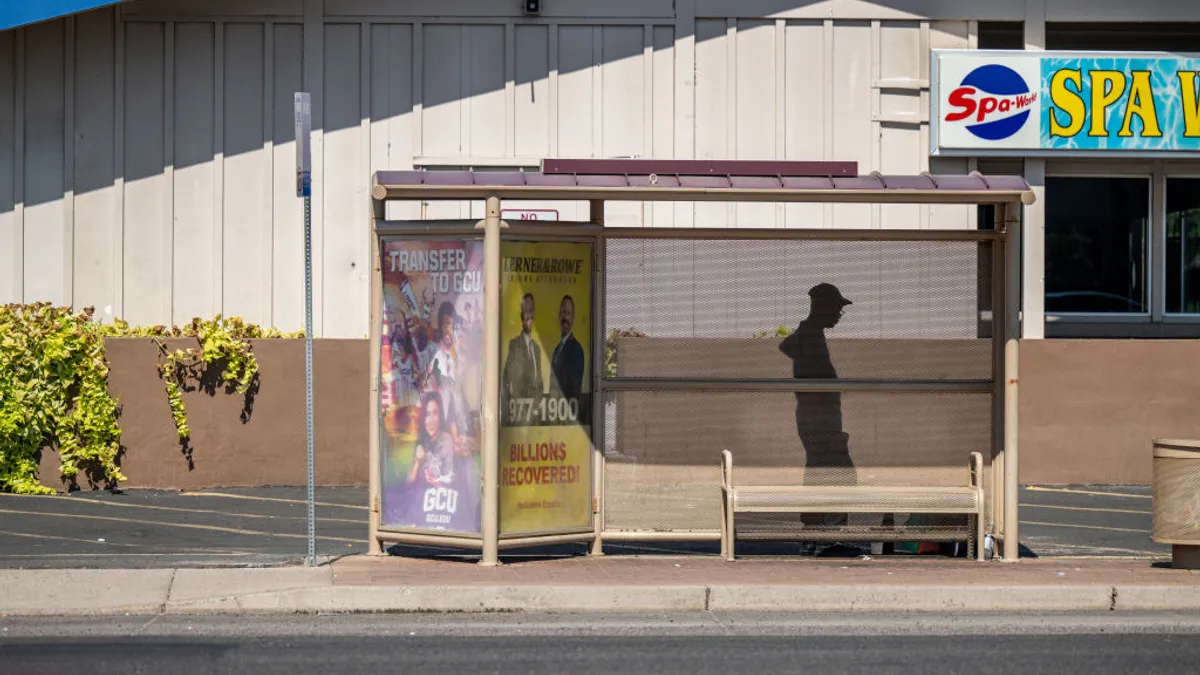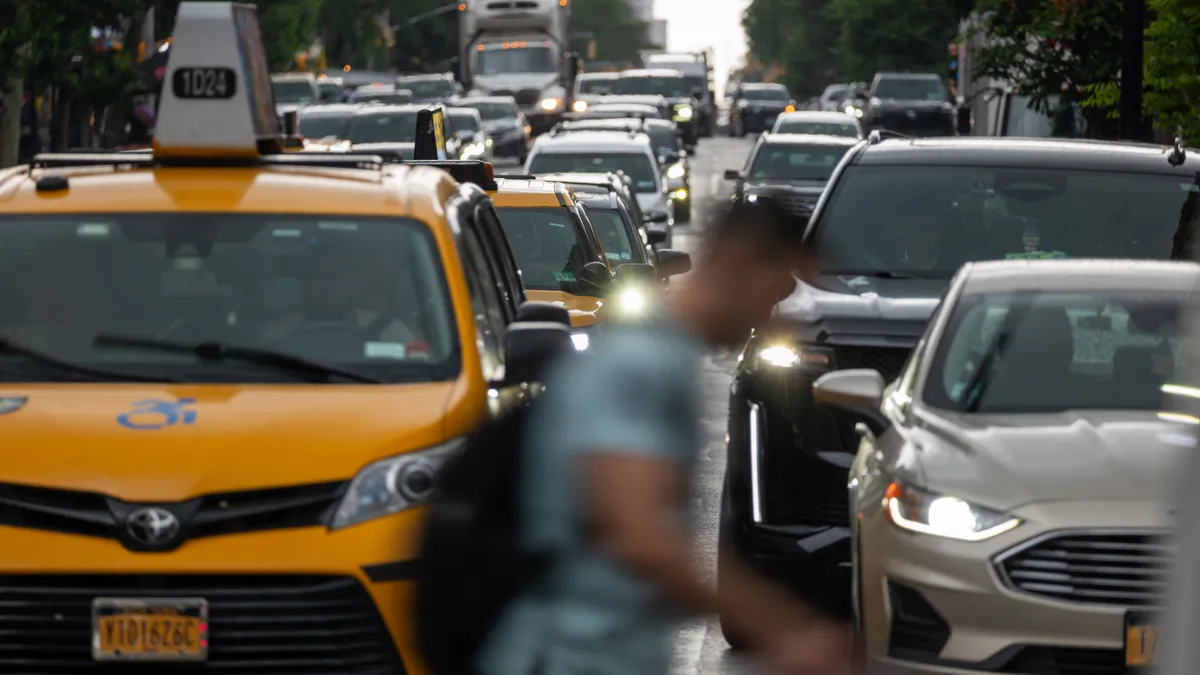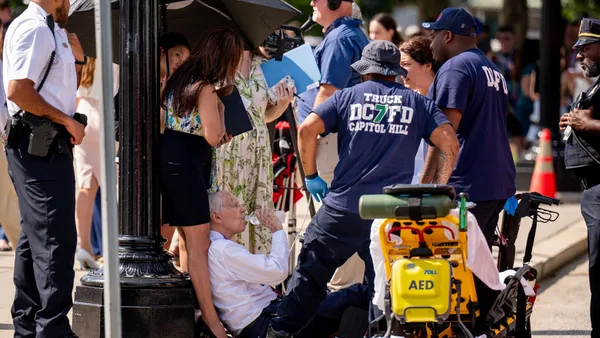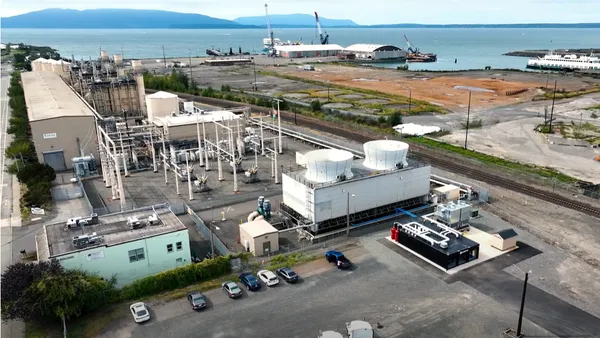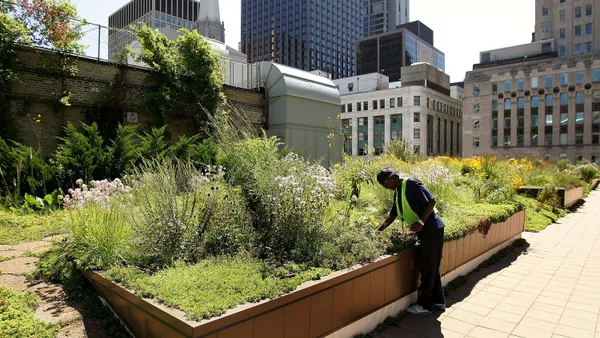Dive Brief:
- The Adrienne Arsht-Rockefeller Foundation Resilience Center unveiled the first of its Community Resilience Pods this weekend in Miami-Dade County, FL, to help residents who are struggling with food insecurity.
- The center and its local partners distributed 1,300 food boxes at two events Saturday, as well as mango fruit trees and potted kitchen gardens with information on the importance of becoming resilient and helping residents learn about planting their own food and community gardens.
- The pod, the first to be deployed in the nation by the resilience center, can have its content changed to highlight different issues, including climate change, extreme heat and natural disasters. It is made up of a 40-foot shipping container donated by the Mediterranean Shipping Company (MSC) Foundation. Officials said they expect to deploy more in the Miami area before expanding to the rest of Florida and around the world.
Dive Insight:
The center has an overall aim of reaching 1 billion people with resilient solutions by 2030. The prototype pod and this weekend's events were the first step towards that goal, Rosemary Mann, director of the Strategic Partnerships Initiative for the Adrienne Arsht-Rockefeller Foundation Resilience Center and a leader on the Community Resilience Pod, told Smart Cities Dive.
Locally, the initiative's goal is to reach at least 2.8 million in Miami-Dade County in the next 10 years, with its content determined after extensive community engagement.
"The way that we built the content of our pod was really to work inside the community, so we didn't just come in, do a pod and give it to the community," Mann said. "We worked with the community for six months on the messaging and the challenges that are most important to vulnerable communities and other communities within the county."
Food insecurity is an issue throughout the United States and local governments have turned away from one-off attempts to bring more food to underserved areas and instead look to more sustainable and comprehensive strategies. And with the coronavirus pandemic (COVID-19) forcing many people in Miami and nationwide out of work, Mann said the pod's ability to have its content quickly adapted and be relevant to current events is key.
"We're having big issues here with food insecurity issues where people don't have enough to eat, they've lost their jobs, and people from all walks of life, from the vulnerable to people who are doing quite well, losing their jobs," she said. "We decided that this pod has always been about reaching people where they are and being able to tackle challenges quickly and engage quickly with communities across the 13 districts of Miami-Dade County."
The pods are designed to build on Greater Miami's Resilient305 strategy, which was released last year and emphasizes not only the need for residents to be aware of the risks of climate change, but also encourages individual and community preparedness in other areas. As cities look to recover and rebuild from the coronavirus pandemic, the idea of building community resilience through areas like addressing income inequality, supporting small business and having stronger social bonds is starting to permeate.
"It's really about empowering the individual to have a role and to feel confident and secure that they can manage any crisis and help manage it within their own families and within the community," Mann said.
To keep up with all of our coverage on how the new coronavirus is impacting U.S. cities, visit our daily tracker.



